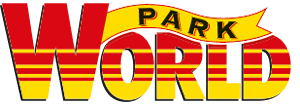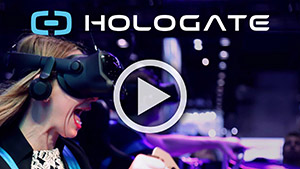by Heather M Eichenbaum Esq

Those of us who deal with litigation in the amusement industry are familiar with releases executed when a claim is resolved to prevent the patron from later seeking more money from the park. However, there are also releases that can be signed before an accident even happens that will also preclude future claims or lawsuits, effectively insulating the park from personal injury litigation.
While not upheld in every jurisdiction or under all facts, where effective, such pre-accident releases can save a park significant sums of money in litigation and insurance costs.
Pre-accident releases are not a new concept. However, many parks have refrained from having guess sign them due to the obvious inconvenience. In paper form, releases can be cumbersome to obtain and store indefinitely, and it can be just as difficult to locate a specific release when needed in any given case. Although paper releases can be scanned into a computer to make locating them easier when needed, the process of scanning all paper releases is also extremely time-consuming. However these disadvantages have now, in some jurisdictions, been nullified.
In Philadelphia, Pennsylvania, a court recently upheld an electronic release and waiver in a near-death injury case. In that case, a man registered online for a triathlon and, in the process, agreed to a waiver and release. He almost died during the triathlon and later filed suit against the event organiser. However, the Court dismissed the triathlete’s claims because he had agreed to the waiver and release before the event. The fact that the release was electronic was irrelevant to the analysis.
An electronic release, “signed” on a computer, is substantively the same as a traditional paper release. The electronic release must satisfy all requirements of a paper release in the jurisdiction where it will be applied with regard to font size and typeface. Those requirements aside, however, the “signer” will just click a box to signify agreement to the terms of the release. Some electronic waivers also have the “signer” type their name on a “signature line”, further indicating consent to the release agreement.
There are several benefits to electronic releases. First, electronic releases are far more convenient and less time-consuming to collect from your guests. Being frank, how many people even read the agreements they enter into online each time they click to agree before continuing? Those implementing electronic releases are not likely to hear much, if anything, from patrons because those patrons are unlikely to read the release they agree to. This is not, by the way, a defence to enforcement of the release, in most jurisdictions.
Second, electronic releases can be easily incorporated into all online ticket sales and at ticket booths, particularly when accepting credit cards. The purchase process simply needs to include the release language and the necessity of “signing” the release before the transaction can proceed. Further, there is no need to “store” the electronic releases in any way other than a standard computer back-up, eliminating the inconvenience of storing paper releases. Finally, locating an electronic release even 20 years later is simple. A quick search by name and/or date will retrieve the release at issue.
All international and regional jurisdictions have varying requirements for releases in general, and these same requirements will apply to electronic releases. It is, therefore, necessary to consult legal counsel to ensure that the release you implement has the greatest likelihood of being upheld by a court.
Heather M Eichenbaum is a Member with Spector Gadon & Rosen, practising in Pennsylvania, New Jersey, Florida and New York. In addition to defending parks and other leisure facilities, she is often called to prepare waivers and releases for amusement venues, handle crises and provide training on crisis management, safety and witness testimony. Legal counsel to, and a board member of, NAARSO, she is also a member of the NJAA, IAAPA, OABA and IISF. Should you need legal assistance, reach Heather at: +1 215-241-8856, or heichenbaum@lawsgr.com

